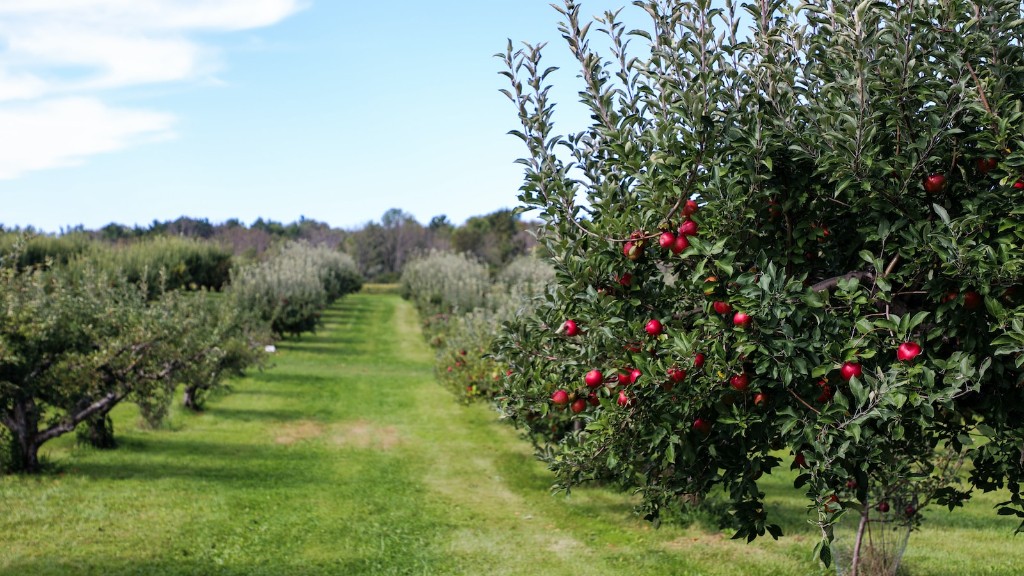Palm trees are one of the most popular, decorative trees often seen all over the world. But what soil is best for palm tree growth? Many palm tree enthusiasts may not be aware that the right soil is essential for supporting the sustainable growth of palm trees. Palm tree soil should deliver moisture and nutrients, be conducive to aeration, and support pH balance.
The key to healthy palm trees is the right soil. A good mix of palm soil is designed to provide an ideal environment for optimal water and nutrient absorption. The soil should provide a solid, yet lightweight rooting medium, with the ability to retain moisture, promote good aeration and give ideal drainage. Nutrients, bacterial, and mineral content of the soil should be balanced for healthy palm tree growth and development.
The best soil mix for palm trees is one with a combination of peat moss, thin compost and some natural leaf mold. Peat moss should form the bulk of a soil mix for palm trees, as it will provide a good balance for moisture and drainage. For good drainage, perlite or vermiculite can be added to the potting mix. A thin compost layer can help to release additional nutrients, while natural leaf mold will provide extra aeration. It is important to note that if you want to plant price of palm trees directly in the garden, then the soil mix should not be light in weight, as it will not provide enough support when planted in the ground.
Importance of Regular Watering and Fertilizing
In addition to the right soil mix, regular watering and fertilizing are important in supporting the growth of a palm tree. While adding additional water to a palm tree is critical for healthy growth, it is also important to only water it when the soil becomes dry. The palm soil should never be completely waterlogged, as this may cause root rot. Regular fertilizer applications will help to promote a richer and healthier color consistency in foliage and can also help to supplement the nutrient content of the soil.
Furthermore, it is important to use the right fertilizer specifically designed for palm trees. Any fertilizer recommendations should be followed. It is also important to note that fertilizing also depends on the soil texture and amount of nutrients in the soil. For instance, if there are already ample amounts of nutrients, then extra fertilizer is not necessary.
Importance of Management Practices
Besides the right soil mix and regular watering and fertilizing, proper management practices are especially important to ensure healthy palm tree growth. For instance, regularly removing dead leaves, pruning, and aerating the soil is recommended to help promote healthy growth and extend the lifespan of the tree. Similarly, controlling pests and diseases that may affect palm trees is an important aspect of management. Products such as insecticides and fungicides should be used with care. Furthermore, additional mulch such as manure or wood chips can be added to help retain moisture.
Moreover, it is critical to understand the needs of the specific palm tree species and to provide the necessary conditions for its optimal growth. The soil should be tested at the local Cooperative Extension Service to determine the soil’s acidity, alkalinity, and any existing nutrient deficiencies. Once the soil’s health status is known, appropriate amendments can be added to supply the macro and micro nutrients required for healthy palm tree growth.
Growing Palms in Containers
Growing palm trees in containers is also a popular and viable option. Planting in containers is much the same as in the ground, with the difference being that the soil mix should be more lightweight. To create the right container mix, potting soil combined with perlite and/or vermiculite is recommended. A thin layer of compost can be added to the soil to provide additional in-ground nutrients, while a sand and some mulch can be placed at the top of the container to absorb additional moisture. When planting in a container, it is important to choose the right size. A container should be wide enough to provide adequate space for the root system and to absorb moisture.
Conclusion
To conclude, cultivating a healthy palm tree requires understanding the basics of soil management. Retaining a good balance of moisture and nutrients, providing good aeration and the right pH levels are all important. Having the right soil mix, regular watering and fertilizing, mulching and pest and disease management are also crucial aspects to consider when selecting the right soil for palm trees. Lastly, it is important to select the right size container when planting a palm tree in a container.
Soil pH Requirements
The ideal soil pH for palm tree cultivation is in the range of 6.0 to 8.0, which is slightly acidic. The pH should be closely monitored and tested annually, as most palms prefer a slightly acidic soil. If the pH level is too neutral or basic, the soil should be amended with a good organic material like peat moss. If the pH level is too far off from the ideal range, soil replacement or amendment, with limestone, sulfur, or any other soil amendment may be necessary.
Avoiding Common Soil Problems
It is important to note that soil compaction can be a major problem when cultivating palm trees. This can cause the roots to “choke”, reducing their ability to access moisture and nutrients. Thus, when cultivating palm trees, it is important to aerate the soil on a regular basis to ensure proper aeration, and to prevent soil compaction. Similarly, excessive soil saturation should be avoided, as this can cause root damage and death.
Choosing the Right Fertilizer
When choosing a fertilizer for palm trees, it is important to consider factors like tree size, soil type and nutrient levels of the soil. Slow-release palm fertilizer is considered to be a good option for palms as it delivers sustained nutrients. Furthermore, it is important to select a fertilizer having the right combination of nutrients such as nitrogen, phosphorous, magnesium, and essential trace elements such as iron, manganese and zinc.
Organic Fertilizers
Organic fertilizers are also gaining popularity for use in palm tree cultivation. Examples of organic fertilizers are bat guano, fish emulsion, manure and compost tea. These fertilizers can provide better results than synthetic fertilizers and are considered to be beneficial for the soil and the environment. Organic fertilizers can also promote a more effective and sustainable growth in palm trees.
Importance of Drainage
In any soil for palm trees, good drainage is an important consideration. Soil with poor drainage can cause waterlogging and root rot, as palm trees prefer to stay somewhat dry. Poor drainage also causes anaerobic conditions and can lead to nutrient depletion. Thus, it is important to ensure good drainage in the soil to prevent root rot and other potential problems.



